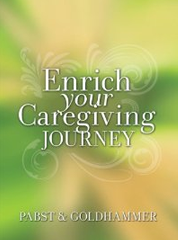Atlantic Center for The Arts
Grant Recipient: Atlantic Center for The Arts
Programming Funded: Arts & Wellness Academy
In 2020, The Pabst Steinmetz Foundation funded the continued success of Atlantic Center for the Art’s Arts and Wellness Academy. The Academy had previously received funding from the Pabst Foundation before its merger with the Charles P. Steinmetz Foundation.
How PSF helped achieve the programming goal:
In 2012, Atlantic Center for the Arts (ACA) established its cutting-edge Arts & Wellness initiative that reaches out to all generations by connecting community health to the arts. With initial support from the Pabst Steinmetz Foundation, ACA collaborated to create a series of innovative video resources for caregivers with care partners who are navigating the stages of dementia. ACA staff and local artist ambassadors expanded this idea in 2016 by offering a robust array of multidisciplinary artistic workshops in the community to support healthy living from a holistic perspective, such as Expressive Art Journaling, the Soundwalk series, Creative Caregiving, and Painting for Veterans. These programs continue to offer participants creative solutions to mental, emotional, and physical ailments, strengthen relationships, boost self-confidence and self-care, help elders to overcome age and disability discrimination, and prevent loneliness and isolation, among the wider benefits of creating community connections and building empathy.
Through intensive fieldwork and evaluation, ACA artists and staff developed a methodology that uniquely serves any demographic. This method was formalized as a professional development course, the ACA Arts & Wellness Academy—currently offered yearly in New Smyrna Beach and online. During the past several years, the Academyhas attracted interest from graduate students, teaching artists, and healthcare professionals who wish to broaden their knowledge of social prescribing and learn how to deliver expressive arts without the requirement of a degree in music or art therapy. The Academy highlights the philosophy that everyone is creative and can benefit from the activation of neuroplasticity inherent in artistic process-based experiences.
With generous support from the Pabst Steinmetz Foundation, ACA has produced the Academy as an accessible resource that promotes the connection of community health to the arts. With future funding, ACA plans to add new and relevant content to the course curriculum and provide scholarships to those in need. ACA has interest from Stetson University Health Sciences Department to incorporate the Academy into its continuing education curriculum, with additional funding being sought.
The Academy has offered several scholarships to those in need. One of our alumni, Daria Hammond, traveled from Alabama for the in-person Academy and gave us this feedback: “Thank you for spreading so much of your wisdom and knowledge. This course was life-changing for me and I’m truly appreciative of the time you all took to invest in us.” Daria works for a hospital and was eager to learn how to incorporate her artistry into her community health practice. Another of our scholarships was awarded to Sauda Jackson, an African dance instructor from Central Florida. She said of the program, “I’m so grateful to ACA for allowing me to be a part of this amazing Academy! The course exceeded my expectations and I now see a clear path forward for my art to help others.”
Additional feedback includes:
“I greatly appreciated the encouragement to put these ideas into a plan and then subsequent actions for them. Also, [I enjoyed] meeting like-minded individuals with a desire to help our communities.”
“This was a wonderful experience in a beautiful place. Everyone there brought a special and unique piece of the puzzle to create an inspired understanding for the power of the arts for healthy people and a healthy community.”
“I want to thank you for the excellent Arts & Wellness program that we bring Harry to on Mondays. This is the only thing that gets him out of his room, out of bed. He has withdrawn from everything but looks forward to his music time. And I observed that he eats whatever is put in front of him, which is not the case at home. It has definitely made his world a little brighter. His dementia seems to disappear for a couple of hours on Mondays. And he smiles the whole time! Harry’s doctor was amazed at the progress he has made in the past year, and I can only attribute it to these sessions. Many have been in the group since day one and we have formed friendships and bonds; we care about each other, worry when they’re not there.”
Sue Flynn, Caregiver and Volunteer
